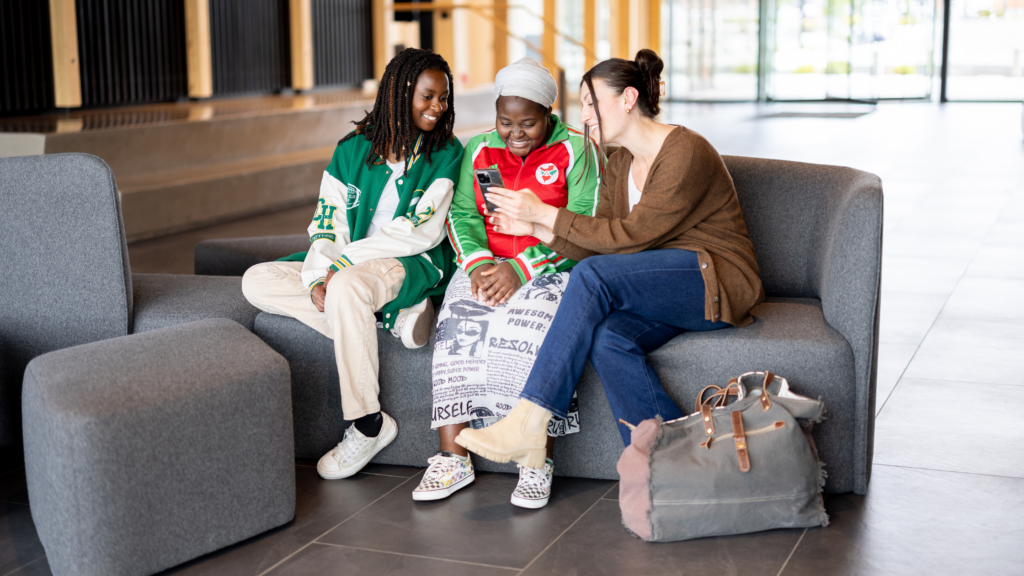Unseen and Unheard
In the corridors of academia, a silent struggle persists, affecting a group of students who often go unnoticed: first-generation college students. Despite the unique challenges they face, these students exhibit remarkable resilience and determination. They are the trailblazers in their families, embarking on a path filled with uncertainty and hurdles that their peers may not fully understand. Yet, their struggles remain largely invisible, perpetuating educational inequity and limiting their potential for success.
Who Are First-Generation College Students?
First-generation college students are defined as individuals who are the first in their immediate families to attend a college or university. This demographic is often composed of students from low-income backgrounds, many of whom are from minority groups and underrepresented communities. These students carry the hopes and dreams of their families, stepping into an unfamiliar world without the guidance of parents who have navigated the higher education system before them.
However, this lack of familial precedent creates a host of challenges. Unlike their peers from college-educated families, first-generation students must often figure out the complexities of higher education on their own. This includes understanding the admissions process, financial aid, and academic expectations—daunting tasks without prior knowledge or support.

The Hidden Struggles of First-Generation College Students
The academic, financial, and emotional challenges faced by first-generation college students are profound and multifaceted. These struggles often remain hidden, contributing to a cycle of disadvantage that is difficult to break.
Academic Challenges: First-generation students frequently enter college with academic gaps, often stemming from underfunded K-12 schools and a need for more access to college preparatory resources. This academic disadvantage can lead to lower grades, difficulty in adapting to college-level coursework, and, ultimately, a higher likelihood of dropping out. In fact, only 48% of first-generation students are on track to graduate three years after enrollment, compared to about 66% of non-first-generation students, according to data from EAB. This stark difference highlights the critical need for academic support tailored to their unique circumstances.
Financial Barriers: The financial burden on first-generation college students is another significant obstacle. According to the Pew Research Center, about two-thirds (65%) of first-generation college graduates owe at least $25,000 or more in student loans, compared with 57% of second-generation college graduates. This substantial debt often deters first-generation students from pursuing higher education or forces them to drop out before completing their degrees. Additionally, only 27% of first-generation students receive assistance from their parents in completing financial aid forms, compared to 57% of students with college-educated parents, according to the Pell Institute. This lack of support further complicates their financial planning and contributes to their overwhelming debt.
Emotional and Social Isolation: First-generation students often experience emotional and social challenges beyond academics and finances. Many feel isolated on college campuses, struggling to connect with peers who may not understand their unique experiences. This isolation can exacerbate feelings of anxiety and depression, which are more common among first-generation students than their peers, according to the National Institutes of Health (NIH). Despite these mental health challenges, first-generation students are also less likely to have access to the necessary mental health services, further deepening their struggle.

Why These Struggles Often Go Unnoticed
The struggles of first-generation college students often go unnoticed due to several systemic factors:
Lack of Awareness in Educational Institutions: Many colleges and universities need to be fully aware of the specific needs of first-generation students, and as a result, they may not offer the tailored support these students require. This lack of awareness contributes to a one-size-fits-all approach to education, which fails to address the unique challenges faced by first-generation students.
Underrepresentation in Research and Policy: There is also a significant gap in research and policy-making that overlooks the challenges faced by first-generation students. Without adequate representation in studies and educational policies, the issues these students face remain largely invisible, leading to a lack of targeted interventions.
Cultural Stigma and Pride: Cultural factors also play a role in the invisibility of first-generation students’ struggles. Many come from backgrounds where seeking help is stigmatized or viewed as a sign of weakness. This cultural pride can prevent them from reaching out for the support they need, further isolating them and perpetuating their challenges.

The Consequences of Ignoring First-Generation College Students
The consequences of ignoring the struggles of first-generation college students are far-reaching:
Increased Dropout Rates: As mentioned earlier, first-generation students are less likely to graduate on time, if at all. This increased dropout rate affects the students themselves and limits the diversity and richness of the broader educational environment.
Widening Educational Inequity: Ignoring the needs of first-generation students exacerbates existing inequalities in higher education. As these students fall behind, the gap between them and their peers continues to widen, reinforcing a cycle of disadvantage that can persist across generations.
Missed Opportunities for Talent Development: First-generation students bring unique perspectives and talents to the table. We need to support them adequately to avoid losing out on the potential contributions they could make to society if given the chance to succeed.

Introducing iLevelUP for First-Generation College Students
What is iLevelUP?
iLevelUP is a dedicated app developed by Believe in Me to empower first-generation college students by providing them with the resources, guidance, and community support they need to succeed in higher education. Tailored specifically for students from marginalized backgrounds, iLevelUP offers personalized mentorship, financial literacy programs, career planning tools, and innovative technology to help these students navigate the complexities of college life and achieve their full potential.
Why Investment is Crucial: Addressing the challenges faced by first-generation college students requires a concerted effort from all sectors of society. Donors, corporations, foundations, and government agencies have a crucial role to play in providing the resources and support necessary to help these students succeed.
How iLevelUP Can Make a Difference: iLevelUP is more than just an app; it’s a transformative tool designed to address the unique challenges faced by first-generation college students. By offering a comprehensive suite of resources, personalized guidance, and a supportive community, iLevelUP empowers these students to navigate the complexities of higher education confidently. The app specifically targets marginalized youth, including those from low-income backgrounds, racial and ethnic minorities, and immigrant families, who often face additional barriers to academic success. Through tailored mentorship, financial literacy programs, career planning, and innovative technology integration, iLevelUP helps students build essential skills, connect with valuable networks, and ultimately, bridge the gap in post-secondary education attainment. By providing the support these students need, iLevelUP can be life-changing, enabling first-generation college students to realize their full potential and achieve academic success. This potential for positive change should inspire hope and optimism in all who read this.

How Support Can Redefine First-Gen Success
First-generation college students are a vital yet often overlooked part of the higher education landscape. Their academic, financial, and emotional struggles are significant, and the consequences of ignoring these challenges are profound. However, with the right support, these students can overcome the barriers they face and go on to achieve great things. Tools like iLevelUP provide the necessary resources and guidance to help first-generation students succeed. Still, broader awareness and investment are needed to make a lasting impact. Raising awareness and taking action can help first-generation college students survive and thrive in their academic journeys, ultimately contributing to a more just and equitable society. Visit https://believeinme.org/iLevelUP to learn about how you can get involved.



